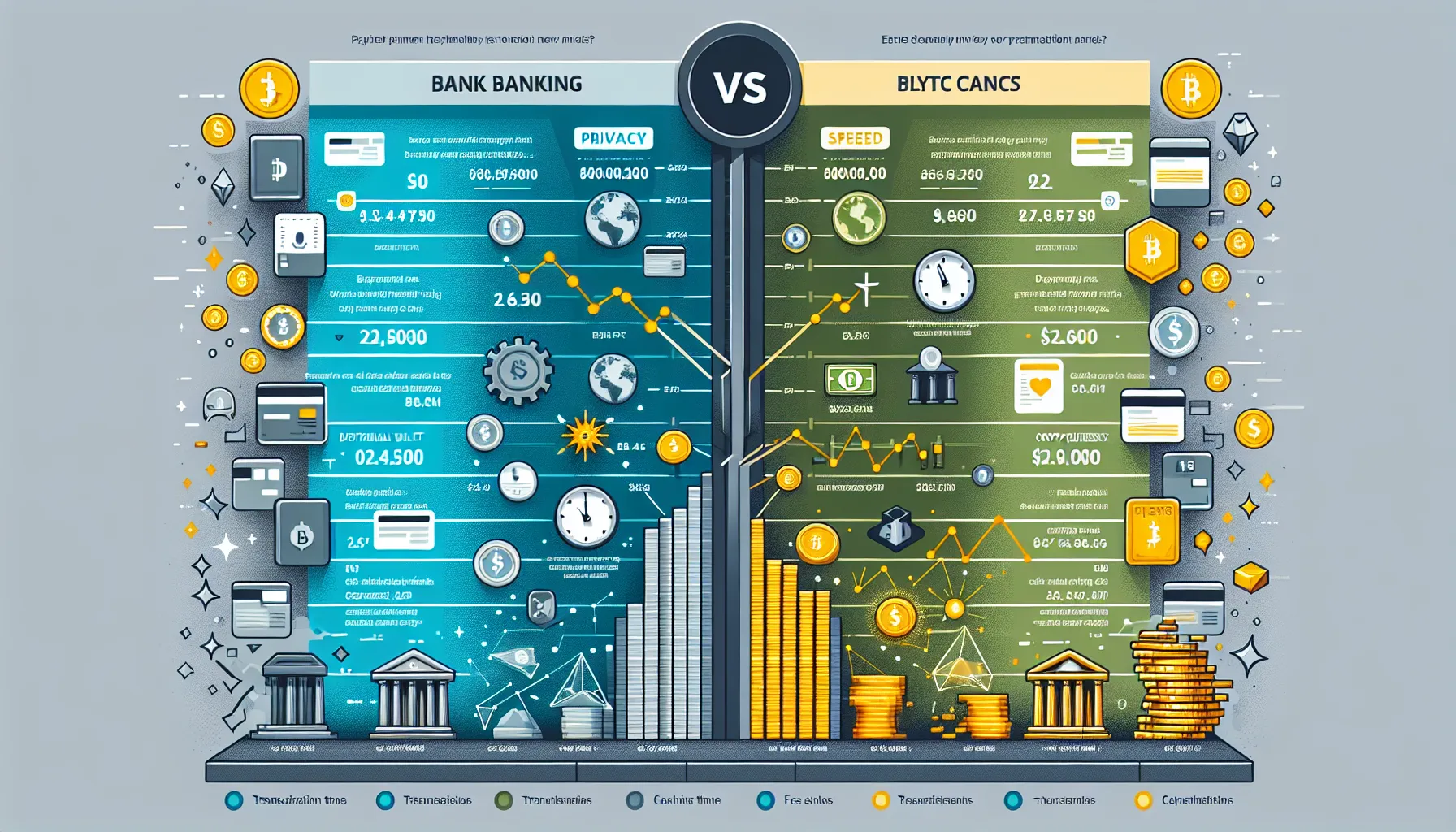The rise of cryptocurrency gambling has fundamentally changed how players manage their casino funds. Unlike traditional banking methods that involve lengthy verification processes and high transaction fees, crypto wallets offer a faster, more private alternative for depositing and withdrawing from online casinos. But, not all wallets are created equal when it comes to casino transactions. Some excel at speed and convenience, whilst others prioritise security and long-term storage. Understanding which wallet type suits specific needs, whether it’s quick deposits for live gaming or secure storage of substantial winnings, can significantly enhance the overall gambling experience. This guide explores the best crypto wallet options available to casino players in 2025, examining their unique features, advantages, and practical applications for seamless gaming transactions.
Key Takeaways
- Crypto wallets offer faster transactions and enhanced privacy compared to traditional banking methods, with deposits arriving within minutes and withdrawals clearing in hours.
- Hot wallets like Exodus and Trust Wallet are ideal for active casino players who need convenient access for frequent deposits and withdrawals.
- Hardware wallets such as Ledger Nano X and Trezor Model T provide superior security for storing substantial casino winnings offline.
- The best wallets to use for crypto casino transactions support multiple cryptocurrencies and stablecoins, offering flexibility across different casino platforms.
- A hybrid approach combining hot wallets for daily gambling and cold storage for long-term winnings maximises both convenience and security.
- Always verify receiving addresses and blockchain network compatibility before making casino transactions to avoid irreversible mistakes.
Why Choose Crypto Wallets for Online Casino Transactions

Cryptocurrency wallets have become the preferred payment method for online casino enthusiasts, and the reasons extend far beyond simple novelty. Traditional banking methods often impose frustrating limitations on gambling transactions, including processing delays that can stretch from three to seven business days. Crypto wallets eliminate this bottleneck entirely, enabling deposits that arrive within minutes and withdrawals that clear in hours rather than days.
Privacy represents another compelling advantage. Whilst conventional payment methods require players to share extensive personal and financial information with multiple parties, banks, payment processors, and casinos, crypto transactions maintain a higher degree of anonymity. Players can gamble without creating a detailed financial trail linked to their identity, which many find appealing for both privacy and discretion.
The fee structure also tilts decisively in favour of cryptocurrency. Banks and payment processors typically charge between 2–5% for international transactions, with additional currency conversion fees often applied. Crypto wallet transactions, by contrast, generally incur minimal network fees, sometimes as low as a few pence, regardless of the transaction amount or geographical location.
Accessibility matters too. Crypto wallets don’t discriminate based on jurisdiction. Players in regions where traditional banking infrastructure struggles or where gambling transactions face restrictions can still access online casinos freely using cryptocurrency. This borderless nature has democratised online gambling, opening opportunities for players worldwide without the bureaucratic hurdles associated with conventional payment systems.
Finally, many crypto casinos reward wallet users with enhanced bonuses, higher withdrawal limits, and priority processing, tangible benefits that recognise the efficiency and lower costs associated with cryptocurrency transactions.
Key Features to Look for in a Crypto Casino Wallet
Selecting the right crypto wallet for casino transactions requires evaluating several critical characteristics that directly impact both security and user experience.
Security and Privacy
Security should anchor any wallet selection decision. The best casino wallets employ multiple protective layers, including two-factor authentication (2FA), biometric verification, and encryption protocols that safeguard private keys. Players should prioritise wallets that offer complete control over private keys, a fundamental principle in crypto security known as “not your keys, not your coins.”
Privacy features vary significantly between wallet types. Some wallets maintain detailed transaction histories visible on public blockchains, whilst others carry out privacy-enhancing technologies like CoinJoin or built-in mixers that obscure transaction origins. For casino players concerned about financial privacy, wallets with robust anonymity features provide an additional layer of discretion.
Reputation matters enormously. Established wallet providers with years of operational history and positive community feedback offer substantially more reliability than newcomers with unproven security track records. Regular security audits, transparent development practices, and responsive customer support all indicate a trustworthy wallet provider.
Transaction Speed and Fees
Casino players need wallets that process transactions efficiently without excessive costs. Transaction speed depends partly on the underlying blockchain, Bitcoin transactions might take 10–60 minutes for confirmation, whilst networks like Litecoin or XRP settle within seconds. The wallet itself should support adjustable fee settings, allowing users to prioritise speed when necessary or opt for economy during less urgent transactions.
Network congestion can dramatically affect both speed and cost. Wallets with dynamic fee estimation help users avoid overpaying during quiet periods or getting stuck with unconfirmed transactions during peak times. Some advanced wallets offer batching capabilities or support for Layer 2 solutions like the Lightning Network, which drastically reduce both fees and confirmation times.
Supported Cryptocurrencies
Versatility enhances a wallet’s utility for casino players. Whilst Bitcoin remains the most widely accepted cryptocurrency at online casinos, many platforms now support Ethereum, Litecoin, Bitcoin Cash, Dogecoin, and various stablecoins like USDT or USDC. A wallet supporting multiple cryptocurrencies provides flexibility to take advantage of different casinos’ offerings or to switch between assets based on transaction costs and speed.
Stablecoin support deserves particular attention. These cryptocurrencies maintain pegged values to traditional currencies (typically USD), protecting players from crypto market volatility whilst retaining the benefits of blockchain transactions. For players who want to keep their gambling bankroll stable rather than exposed to Bitcoin’s price swings, wallets with robust stablecoin support prove invaluable.
Top Hot Wallets for Crypto Casino Players
Hot wallets, those connected to the internet, offer the convenience and accessibility that active casino players require for frequent transactions.
Software Wallet Options
Exodus stands out as an excellent choice for casino players who value user-friendly interfaces without sacrificing functionality. This desktop and mobile wallet supports over 260 cryptocurrencies, features built-in exchange capabilities, and displays portfolio values in real-time. Its intuitive design makes it ideal for newcomers, whilst experienced users appreciate the customisable transaction fees and robust customer support. Security features include password protection and encrypted private keys stored locally on devices.
Electrum caters to Bitcoin-focused players who prioritise speed and low fees. As one of the longest-running Bitcoin wallets, Electrum offers advanced features like custom transaction fees, hardware wallet integration, and Lightning Network support for instant microtransactions. Though its interface appears more technical than Exodus, the wallet’s efficiency and reliability have earned it a devoted following among serious crypto casino enthusiasts.
MetaMask dominates the Ethereum and ERC-20 token space, making it essential for players using Ethereum-based casinos or participating in blockchain gaming platforms. Beyond standard wallet functions, MetaMask enables interaction with decentralised applications (dApps), including provably fair casino games built on smart contracts. The browser extension format provides seamless integration with online casino platforms, whilst mobile versions offer gaming on the go.
Mobile Wallet Solutions
Trust Wallet delivers comprehensive mobile wallet functionality with support for millions of digital assets across numerous blockchains. Owned by Binance but operating independently, Trust Wallet offers a non-custodial solution where users maintain complete control of their private keys. The wallet includes a built-in Web3 browser for accessing decentralised casinos, staking capabilities for earning passive income, and a simple interface that doesn’t overwhelm casual users.
Coinomi provides another excellent mobile option with support for thousands of cryptocurrencies and tokens across multiple blockchains. Privacy-conscious players appreciate that Coinomi doesn’t collect personal information or track transactions. The wallet features built-in exchange services, allowing players to convert between different cryptocurrencies without leaving the app, useful when a preferred casino accepts a currency the player doesn’t currently hold.
Blockchain.com Wallet offers a balanced mobile solution with strong security features and straightforward usability. The wallet supports Bitcoin, Ethereum, and major stablecoins, whilst providing detailed transaction histories and real-time price charts. For casino players, the ability to buy cryptocurrency directly within the app using bank cards simplifies the process of funding gambling activities.
Best Cold Wallets for Storing Casino Winnings
Whilst hot wallets excel at accessibility, cold wallets, offline storage solutions, provide superior security for substantial casino winnings that don’t require immediate access.
Hardware Wallet Recommendations
Ledger Nano X represents the gold standard in hardware wallet security for casino players with significant holdings. This device stores private keys completely offline on a secure chip, immune to remote hacking attempts. The Nano X supports over 5,500 cryptocurrencies, connects via Bluetooth to mobile devices for convenient transaction signing, and features a larger screen than its predecessor for easier transaction verification. Casino players can keep daily gambling funds in hot wallets whilst storing the bulk of winnings on a Ledger, transferring between them as needed.
The device’s security architecture includes a PIN code, optional passphrase protection, and a recovery seed phrase for restoring access if the device is lost or damaged. For players who’ve accumulated substantial winnings, the Ledger’s ~£120 price point represents a small investment compared to the security it provides.
Trezor Model T offers comparable security with some interface advantages. Its full-colour touchscreen simplifies navigation and transaction confirmation, whilst support for Shamir Backup allows users to split their recovery seed across multiple shares for enhanced security. The Trezor supports fewer cryptocurrencies than Ledger but covers all major options used in online casinos. Open-source firmware provides transparency that security-conscious users value, as the code undergoes regular community audits.
SafePal S1 presents a budget-friendly hardware wallet option without compromising essential security features. Priced around £50, this device offers air-gapped security (no USB or Bluetooth connections), a camera for QR-code-based transactions, and support for thousands of cryptocurrencies. For casino players wanting hardware wallet security without the premium price, SafePal delivers impressive value. The complete offline operation eliminates potential attack vectors associated with device connections, though it makes transactions slightly less convenient than Bluetooth-enabled alternatives.
The strategic approach for serious casino players involves using hardware wallets as savings accounts for accumulated winnings, periodically transferring excess funds from hot wallets after successful gambling sessions. This hybrid strategy balances convenience for active play with security for long-term storage.
Exchange Wallets vs Dedicated Crypto Wallets
The debate between using exchange-hosted wallets versus dedicated personal wallets significantly impacts security, control, and convenience for casino players.
Exchange wallets, provided by platforms like Coinbase, Binance, or Kraken, offer undeniable convenience. Players can purchase cryptocurrency, store it, and send it to casino accounts from a single interface. For beginners, this integrated approach reduces complexity and eliminates the need to manage private keys or worry about seed phrases. Many exchanges also provide insurance against hacking incidents and carry out robust security measures including cold storage for the majority of customer funds.
But, exchange wallets represent custodial solutions where the platform controls users’ private keys. This arrangement contradicts a fundamental cryptocurrency principle: true ownership requires private key control. If an exchange suffers technical issues, regulatory problems, or insolvency, users might temporarily or permanently lose access to their funds. History provides sobering examples, the Mt. Gox collapse in 2014 and more recent exchange failures have cost users billions in locked or lost cryptocurrency.
Dedicated wallets provide complete ownership and control. Users who manage their own private keys face no risk of exchange shutdowns affecting their funds. Privacy also improves significantly, as exchanges typically require extensive identity verification and monitor transaction activities, sometimes flagging or restricting gambling-related transfers. Dedicated wallets impose no such oversight or restrictions on how users spend their cryptocurrency.
The practical middle ground for casino players involves using both strategically. Exchanges serve well as on-ramps for purchasing cryptocurrency and as temporary holding locations for funds about to be deposited at casinos. Dedicated wallets, whether hot wallets for active play or hardware wallets for significant holdings, provide secure, unrestricted storage for gambling bankrolls and winnings. This hybrid approach captures the convenience of exchanges whilst maintaining the security and autonomy of personal wallets.
For experienced players, dedicated wallets remain the clear preference. The minor inconvenience of managing private keys pales beside the security, privacy, and complete control they provide.
How to Set Up Your Wallet for Casino Transactions
Properly configuring a crypto wallet for casino use involves several straightforward steps that ensure smooth transactions and maintain security.
Begin by downloading the wallet software from official sources only. Phishing websites distributing malicious wallet applications represent a common attack vector. Verify URLs carefully, check developer signatures, and read community feedback before installing any wallet software. For hardware wallets, purchase directly from manufacturers rather than third-party sellers to avoid tampered devices.
During initial setup, the wallet will generate a recovery seed phrase, typically 12 to 24 words, that provides complete access to funds. Write this phrase on paper (never store it digitally or photograph it) and keep it in a secure location separate from the device running the wallet. This seed phrase represents the ultimate backup: anyone with access to it can steal funds, but without it, lost or damaged devices mean permanently lost cryptocurrency.
Enable all available security features immediately. Activate two-factor authentication using an authenticator app rather than SMS (which remains vulnerable to SIM-swapping attacks). Set strong, unique passwords combining letters, numbers, and symbols. For wallets supporting biometric authentication, enable fingerprint or face recognition for convenient yet secure access.
Before depositing significant amounts, conduct test transactions. Send a small amount of cryptocurrency to the wallet, then practice sending it to a casino account or another wallet address. This rehearsal familiarises users with the interface and confirms everything functions correctly before higher-value transactions. Many casinos also allow test deposits to verify addresses.
Organise multiple wallet addresses if supported. Some wallets generate new receiving addresses for each transaction, enhancing privacy by making it harder for observers to link deposits and withdrawals to a single user. For players using multiple casinos, maintaining separate addresses for each platform provides additional organisational clarity.
Stay informed about network conditions before making time-sensitive transactions. Websites like mempool.space (for Bitcoin) display current network congestion and recommended fee rates. During busy periods, users might need to increase transaction fees to ensure timely confirmation, particularly when depositing funds for specific tournaments or time-limited promotions.
Regularly update wallet software to benefit from security patches and new features. Enable automatic updates where available, or subscribe to development newsletters to stay informed about important releases.
Common Mistakes to Avoid When Using Crypto Wallets at Casinos
Even experienced cryptocurrency users sometimes fall into preventable traps that can result in lost funds or compromised security when gambling online.
Sending to incorrect addresses ranks among the most costly mistakes. Cryptocurrency transactions are irreversible, funds sent to wrong addresses cannot be recovered. Always double-check receiving addresses character by character before confirming transactions, or use QR codes to eliminate manual entry errors. Some wallets support address book features or ENS domains (for Ethereum) that replace complex hexadecimal addresses with readable names, reducing mistake likelihood.
Neglecting to verify network compatibility causes frequent problems, particularly with Ethereum and tokens. A casino might support USDT on the Ethereum network whilst a player sends USDT on the Tron network, the funds arrive at an incompatible address and become effectively lost. Always confirm which blockchain network the casino supports before initiating transfers, and ensure the wallet and casino use identical networks.
Ignoring transaction fees during network congestion leads to frustrating delays. Choosing minimal fees might save a pound but result in transactions stuck unconfirmed for hours or days, particularly problematic when trying to deposit for time-sensitive betting opportunities. Conversely, overpaying fees during quiet periods wastes money unnecessarily. Use wallets with dynamic fee estimation to strike appropriate balances.
Storing large amounts in hot wallets exposes users to unnecessary risk. Whilst convenient for daily transactions, internet-connected wallets remain vulnerable to hacking attempts. Players who accumulate significant winnings should transfer excess funds to hardware wallets regularly, keeping only working bankrolls in hot storage.
Reusing addresses excessively compromises privacy. Although convenient, sending all casino transactions through a single address creates a public record linking deposits and withdrawals, potentially revealing gambling patterns and bankroll sizes. Wallets that generate new addresses for each transaction provide better privacy protection.
Failing to record transaction IDs complicates dispute resolution. If a deposit doesn’t appear in a casino account, the transaction ID (hash) provides proof of payment and enables customer support to investigate. Screenshot or note transaction IDs for significant transfers until confirmed by the casino.
Mixing gambling and long-term holdings in the same wallet creates organisational headaches and potential privacy issues. Maintain separate wallets for casino activities and long-term cryptocurrency investments, simplifying accounting and reducing the risk of accidentally spending held assets.
Neglecting to understand minimum deposit and withdrawal amounts wastes transaction fees. Casinos typically impose minimum thresholds, attempting to deposit below these limits means paying network fees for transactions the casino won’t credit. Review casino requirements before initiating transfers.
Conclusion
Selecting the right cryptocurrency wallet fundamentally shapes the online casino experience, influencing everything from transaction speed and privacy to long-term security of winnings. The ideal solution varies based on individual priorities, active players benefit most from user-friendly hot wallets like Exodus or Trust Wallet that help quick deposits and withdrawals, whilst those accumulating significant winnings should invest in hardware wallets like Ledger or Trezor for robust offline storage.
The strategic approach involves matching wallet types to specific use cases: hot wallets for active gambling bankrolls, hardware wallets for substantial holdings, and possibly exchange accounts as convenient on-ramps for purchasing cryptocurrency. This layered strategy maximises both convenience and security, allowing players to enjoy frictionless casino transactions whilst protecting accumulated wealth from potential threats.
As the cryptocurrency gambling landscape continues evolving, wallet technology advances in parallel, offering increasingly sophisticated features for privacy, speed, and usability. Players who invest time in understanding wallet options and implementing proper security practices position themselves to enjoy the full benefits of crypto casinos, fast transactions, enhanced privacy, lower fees, and complete control over their funds. The difference between a mediocre and excellent casino experience often comes down to these foundational choices about how digital assets are managed and secured.
Frequently Asked Questions
What is the best crypto wallet to use for casino deposits and withdrawals?
For active casino players, hot wallets like Exodus and Trust Wallet offer convenient, fast transactions with user-friendly interfaces. For storing significant winnings securely, hardware wallets such as Ledger Nano X or Trezor Model T provide superior offline protection. The best approach combines both types.
How long do crypto casino withdrawals take compared to traditional banking methods?
Crypto casino withdrawals typically clear within hours, whilst traditional banking methods often take three to seven business days. Deposits arrive within minutes using cryptocurrency wallets, making them significantly faster than conventional payment processors for online gambling transactions.
Are crypto wallets safe for storing casino winnings?
Yes, when properly secured. Hot wallets with two-factor authentication suit daily transactions, whilst hardware wallets like Ledger provide optimal security for substantial winnings through offline storage. Always control your private keys and use wallets with proven security track records and regular audits.
Can I use the same crypto wallet for multiple online casinos?
Absolutely. Most crypto wallets support transactions with unlimited casinos. However, using separate wallet addresses for different platforms enhances privacy by preventing observers from linking your gambling activities across multiple sites, a feature many modern wallets support automatically.
What fees should I expect when using crypto wallets for casino transactions?
Crypto wallet transaction fees are typically minimal—often just a few pence—regardless of amount or location. This contrasts sharply with traditional banking methods that charge 2–5% for international transactions plus currency conversion fees. Network congestion can temporarily increase fees during peak periods.
Do I need different wallets for Bitcoin and Ethereum casino transactions?
Not necessarily. Multi-currency wallets like Exodus, Trust Wallet, and MetaMask support numerous cryptocurrencies including Bitcoin, Ethereum, and various tokens. However, ensure your chosen wallet supports all cryptocurrencies accepted by your preferred casinos before making transactions.









